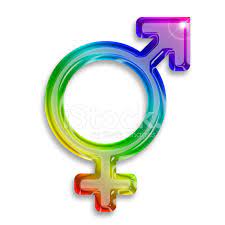Estrogen is a powerful hormone that plays a fundamental role in the health and well-being of both women and men. While it is often associated with female reproductive health, estrogen is crucial for various bodily functions, including mood regulation and bone density. However, the levels of estrogen in the body can fluctuate significantly, leading to either high or low estrogen symptoms that can affect your overall health. In this article, we’ll explore the differences between high and low estrogen levels, the symptoms associated with each, and how you can support your body in achieving a healthy hormonal balance.
Understanding Estrogen: The Key Hormone in Your Body
Estrogen is one of the primary sex hormones in the body, responsible for the development and regulation of the female reproductive system and secondary sexual characteristics. In women, estrogen is produced mainly in the ovaries, but it’s also created in smaller amounts by the adrenal glands and fat tissues. This hormone influences various aspects of health, from regulating the menstrual cycle to impacting mood and bone health. Interestingly, men also produce estrogen, albeit in lower amounts, primarily from their testosterone and adrenal glands.Good Estrogen BlockerWhat Causes Transgender
Estrogen plays a critical role in many biological processes, including metabolism, cardiovascular health, and maintaining cognitive function. It helps to keep the vaginal lining healthy, influences skin elasticity, and even affects how your body handles stress. Understanding the importance of estrogen can shed light on why fluctuations in this hormone can lead to a variety of health issues, both physical and emotional.
High Estrogen Symptoms: What to Look Out For
When estrogen levels are too high, often referred to as "estrogen dominance," it can lead to a host of unpleasant symptoms. Common signs of high estrogen include irregular menstrual cycles, bloating, breast tenderness, mood swings, and increased PMS symptoms. Women may also experience headaches, fatigue, and weight gain, particularly around the hips and waist. In men, high estrogen can lead to symptoms like enlarged breast tissue (gynecomastia), reduced libido, and infertility.
The effects of high estrogen can vary widely from person to person, and while some may experience mild discomfort, others may face more severe consequences, such as increased risk for certain cancers (like breast and uterine cancer) or blood clots. It’s essential to recognize these symptoms early so that you can take steps toward achieving hormonal balance.
Low Estrogen Symptoms: Signs You Shouldn’t Ignore
On the flip side, low estrogen levels can also lead to a variety of concerning symptoms. Women with low estrogen often report hot flashes, night sweats, vaginal dryness, and decreased libido. They may also experience mood changes, difficulty concentrating, and fatigue. As estrogen is crucial for bone health, low levels can lead to osteoporosis and increased risk of fractures over time.
For men, low estrogen may not always be as noticeable, but it can still lead to issues like reduced bone density, low libido, and mood imbalances. Recognizing the signs of low estrogen is crucial, especially in women going through menopause or experiencing perimenopause, as it can significantly impact their quality of life and long-term health.
The Role of Estrogen in Menstrual Health and Mood
Estrogen plays a pivotal role in regulating the menstrual cycle. During the follicular phase of the cycle, estrogen levels rise and help to build the uterine lining in preparation for potential pregnancy. If pregnancy does not occur, estrogen levels drop, leading to menstruation. This delicate interplay can be disrupted by factors like stress, diet, and lifestyle, leading to irregular cycles and hormonal imbalances.
Moreover, estrogen is closely linked to mood regulation. Fluctuating estrogen levels can contribute to mood swings, anxiety, and depression, particularly during the menstrual cycle or menopause. Understanding how estrogen affects mood can empower individuals to take proactive steps in managing their mental health and well-being.
How Diet and Lifestyle Affect Your Estrogen Levels
What you eat and your overall lifestyle can significantly impact your estrogen levels. Diets high in processed foods and sugars can contribute to estrogen dominance, while those rich in fruits, vegetables, and whole grains can help maintain balanced hormone levels. Certain foods, such as flaxseeds, soy products, and cruciferous vegetables, are known to support estrogen metabolism and can help balance hormone levels.
Lifestyle factors like exercise, sleep, and stress management also play crucial roles. Regular physical activity can help lower high estrogen levels and improve overall hormonal health. On the other hand, chronic stress can lead to hormonal imbalances, including fluctuations in estrogen. Making mindful choices about your diet and lifestyle can be a powerful way to naturally influence hormone levels.
Natural Remedies to Balance Your Estrogen Levels
If you’re dealing with symptoms of high or low estrogen, there are natural remedies that may help restore balance. Herbal supplements such as black cohosh, chaste tree berry (Vitex), and Dong Quai are often recommended to support hormonal balance, particularly during menopause or PMS. Additionally, incorporating omega-3 fatty acids found in fish or flaxseeds can help manage inflammation and support hormone production.
Moreover, focusing on gut health is essential, as a healthy gut microbiome can aid in the metabolism and excretion of excess estrogens. Probiotics and prebiotic-rich foods can help support digestive health, leading to better hormonal balance. Always consult with a healthcare professional before starting any new supplements or making significant lifestyle changes.
When to Seek Help: Talking to Your Doctor About Estrogen
If you suspect that your estrogen levels are too high or too low, it’s crucial to seek medical advice. Your doctor can run hormonal tests to determine your levels and help diagnose any underlying conditions. Discussing your symptoms openly can lead to a better understanding of what might be causing your hormonal imbalance and what treatments or lifestyle changes may be appropriate.
Remember that hormonal health is complex, and what works for one person may not work for another. A tailored approach, guided by a healthcare professional, can help you navigate the best options for achieving hormonal balance and improving your quality of life.
Understanding the nuances of high and low estrogen symptoms is essential for maintaining your overall health and well-being. By recognizing the signs and taking proactive steps—whether through diet, lifestyle changes, or natural remedies—you can help restore balance to your hormones. Always keep the lines of communication open with your healthcare provider to ensure you’re making informed choices. Ultimately, finding your hormonal balance can lead to a happier, healthier you!


